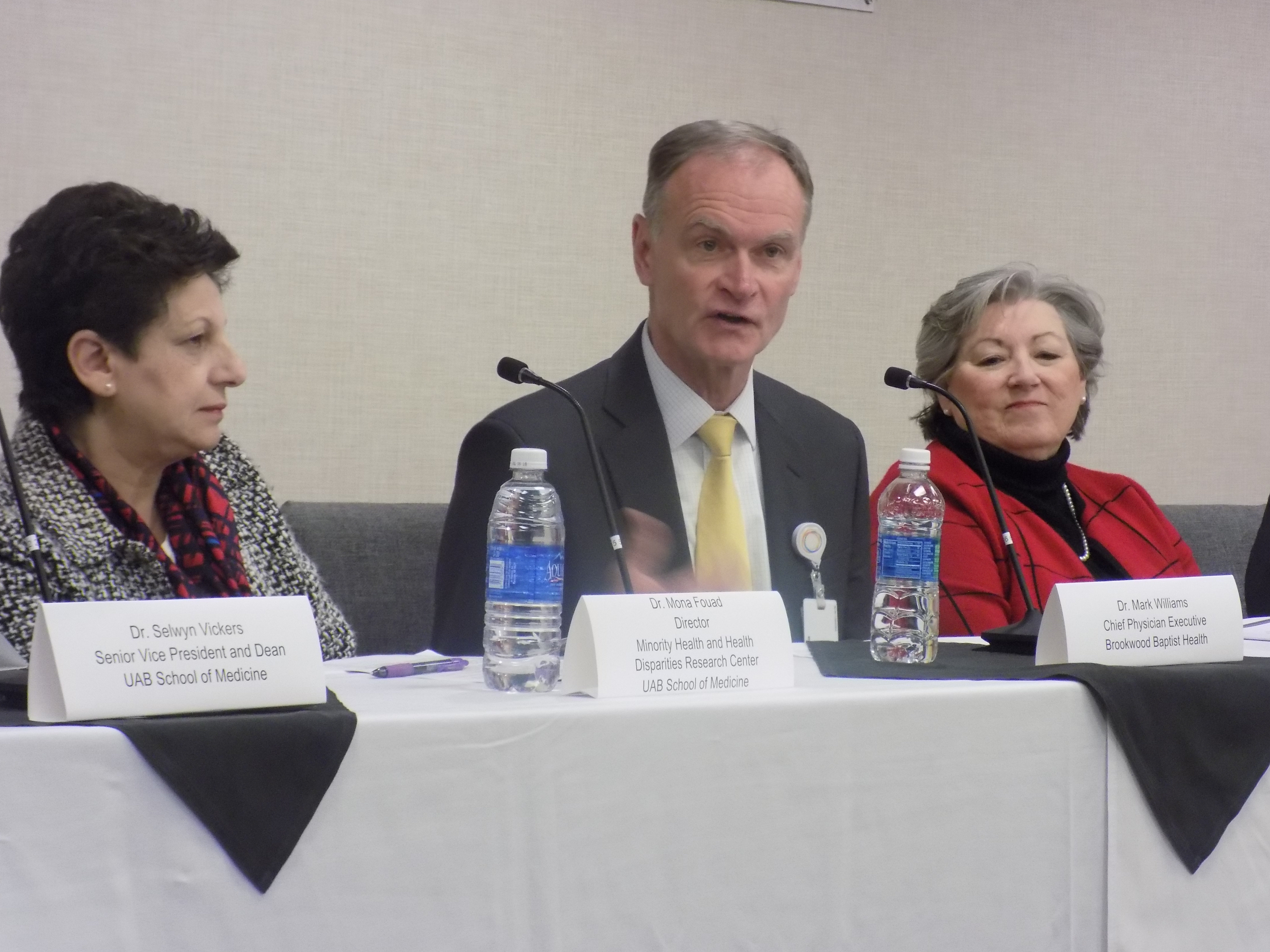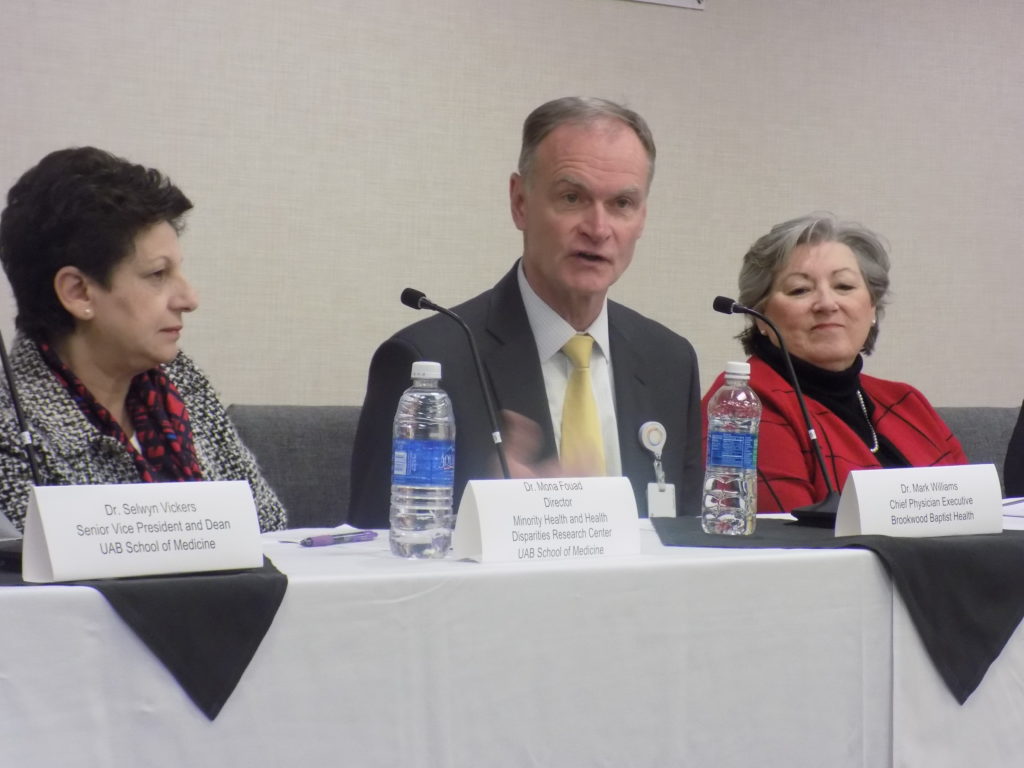
By Monique Jones
The Birmingham Times

The lack of a replacement plan for the Affordable Care Act is “disgraceful,” said Congresswoman Terri Sewell at Princeton Baptist Medical Center Friday.
“I think that the fact that my Republican colleagues, [who] have been downgrading the Affordable Care Act for the last seven years [do not have] a plan that they can roll out today… is really a shame,” she said.
Sewell, (D-AL) spoke before a “Protect Our Healthcare” community forum which featured hospital administrators, healthcare providers, advocates and patients.
“…[T]his is not about politicizing the Affordable Care Act,” said Sewell, “What I really want to talk about is how are we as healthcare providers, as patients, as Alabamians going to protect healthcare today.”
A number of healthcare providers spoke of the need to continue the ACA, which is also known as Obamacare. President Donald Trump has vowed to “repeal and replace” it.
“No, we have not heard what that [replacement] plan would be,” Sewell said.
“…[I]f we totally repeal the Affordable Care Act and replace it with something that does not take care of pre-existing conditions, we go back to an old regime where pre-existing conditions are a deterrent to people getting healthcare, and I think none of us benefit by that,” Sewell said.
Currently, 213,000 Alabamians have gained insurance coverage since the ACA was implemented, including 165,534 individuals who bought health care directly through the marketplace. Those who have gained coverage through the ACA could become uninsured if the act is entirely or partially repealed.
Dr. Mark Williams, chief physician executive of Brookwood Baptist Health, said that could mean uninsured individuals using emergency rooms for preventative care.
“We in the hospital setting often encountered an individual who could only find healthcare in our emergency rooms, and they were reluctant to come to our emergency rooms until they were really sick,” Williams said.
If doctors had a chance to see the patients earlier “it would have been much better for the patient, there would have been a much better outcome, and it would have been a much lower cost,” he said.
The ACA has forced hospitals to become more focused on preventative and more complete patient care, said Dr. Selwyn Vickers, Senior Vice-President and Dean of the UAB School of Medicine.
“The culture of healthcare was ‘do more, get paid more; think about how well it was done afterwards,’” he said. “The ACA, as a general premise said, ‘We’re going to now focus on how well you do it, not how much you do,’” he said.
That changed the dynamic of “how we train our residents, how we prepare our doctors and how our systems work,” he said. “…it’s changed the entire thought process of the culture of how we practice medicine.”
The law has also created a new arm of patient-oriented research created to help hospitals become more efficient while still meeting their financial margins, Vickers said. “…That impact in culture change really, hopefully, will never be replaced,” he said.
Coverage for those at risk
The ACA’s biggest achievement is providing coverage for those who might fall through the cracks, according to those familiar with the law.
“The majority of the people . . . who really benefit from the coverage are rural communities, inner city residents, low-income minorities, and that’s where they would have access to preventative services,” said Dr. Mona Fouad, Director of UAB School of Medicine’s Minority Health and Health Disparities Research Center.
The law has also helped increase insurance options for children.
“One of the things that Alabama has done really well, is that over 95 percent of children in this state have access to some form of healthcare. … and we are above the national average of covering our children,” said Suzanne Respess, vice president of Government Relations at Children’s Hospital.

The people’s healthcare
A positive is that Americans are now thinking of healthcare as a mandatory part of life.
“We’re coalescing in this nation around this idea that healthcare is now a right, not just a privilege. I don’t think we would have said that in ’08 or earlier,” said Brian Massey, Chief Advocacy Officer of Ascension at St. Vincent’s Hospital.
“…I don’t think there’s a lot of traction in D.C. about just replacing [the ACA] and go about our merry way and go back to where we were in ‘08. I think that is a byproduct of the whole ACA debate; we’re coalescing around the idea that healthcare is a right. For everyone who wants coverage, we need to provide avenues to get coverage.”
Hank Adcock, a farmer from Nectar, Ala., attended the forum and spoke of the importance of affordable healthcare. He suffered a hand injury from a hay baler accident in June 2015, causing him to lose several fingers. ACA covered $63,000 of his medical expenses. Without coverage, Adcock would have lost his farm.
“People like me don’t make a whole lot of money compared to a lot of people,” said Adcock, adding that the ACA was “something we could afford. Me and my wife checked on [other insurance] time after time . . . we couldn’t afford it.”




